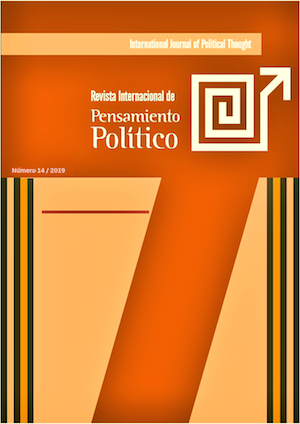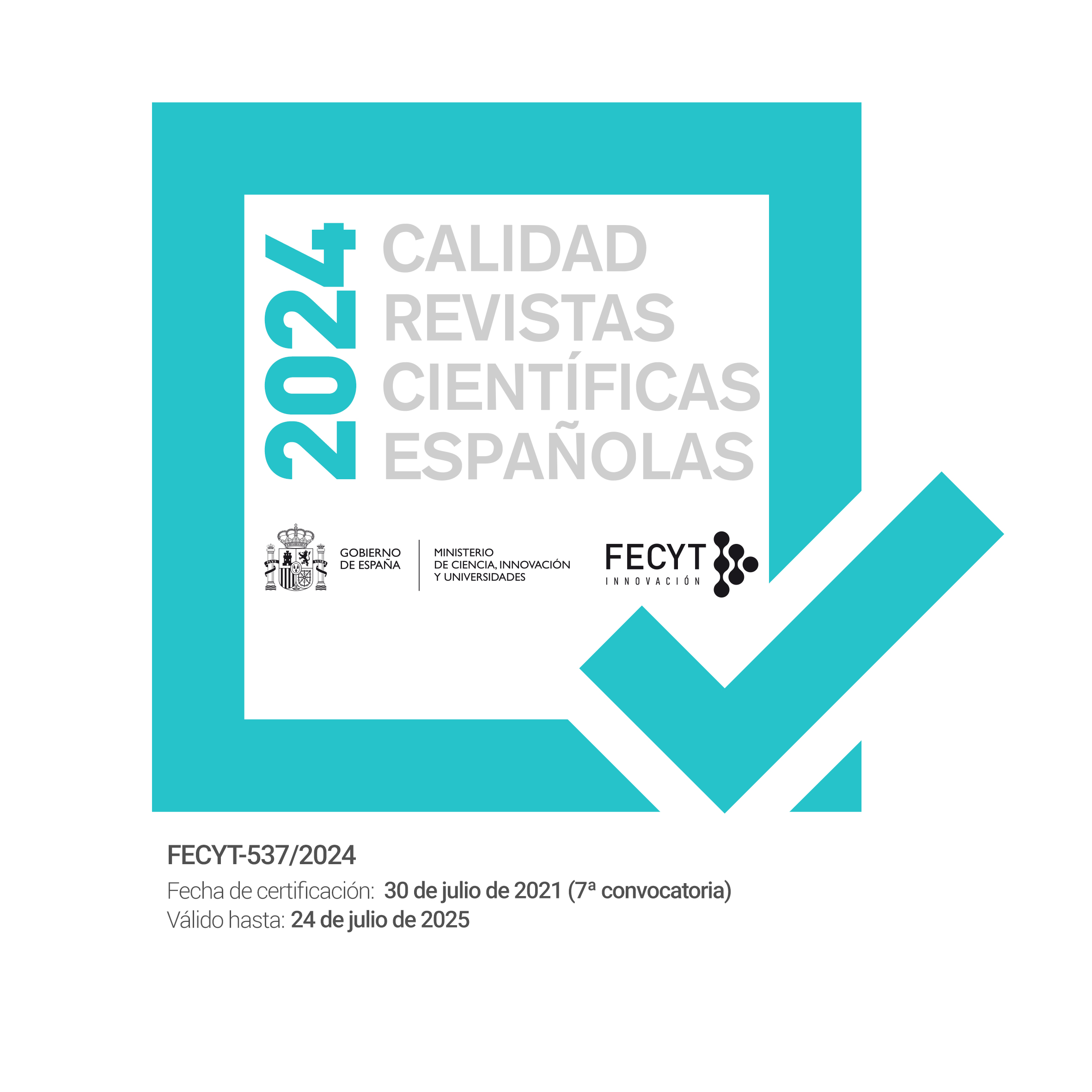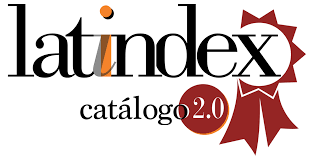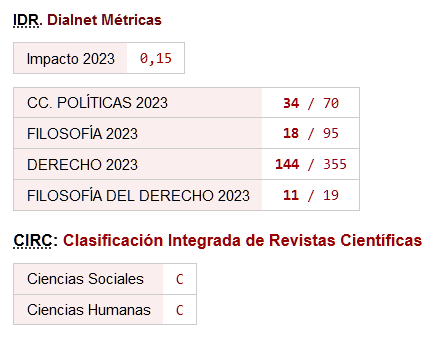Hannan Arendt and John Adams on revolution and the nature of praxis
DOI:
https://doi.org/10.46661/revintpensampolit.4826Keywords:
Power, Auctoritas, Revolution, Arendt, AdamsAbstract
This work exposes the reception of some aspects of the thought of John Adams by Hannah Arendt. We present her debt in the understanding of the concepts of Revolution as an essentially different phenomenon from Restoration, and of Republic as a regime distinct from constitutional government. First, in relation to the revolutionary event, the shift from the initial restorative ambition to the event of the Revolution in Adams, triggers Arendt’s theoretical approach with her category of praxis, which justifies her understanding of the Revolution as “absolute novelty” . Second, we shall address the Arendtian key distinction of auctoritas and potestas, which justifies a lasting foundation in America and the French instability. Finally, we shall argue that in chapters IV and V of On Revolution, Arendt is ambiguous in the way she understands and communicates her concept of Revolution, since at the foundational and constituent moment (in her terms, Revolution), auctoritas and potestas are indiscernible.
Downloads
References
Adams, Discourses on Davila, II, Cf. John Adams, The Works of John Adams, Second President of the United States: with a Life of the Author, Notes and Illustrations, by his Grandson Charles Francis Adams (Boston: Little, Brown and Co., 1856). 10 volumes. Vol. 6. [Online] available from http://oll.libertyfund. org/titles/2104; accessed 29/7/2018; Internet. (Ebook pdf) cf. pp. 156-159).
Arendt, “What is Authority?”, en Between Past and Future. Eight Exercises in Political Thought, New York, Penguin Books, 1993, p. 133.
Arendt, H. On Revolution, New York, Penguin Books, 2006.
Arendt, H. “Religion and Politics”, en Essays in Understanding, 1930-1954. Formation, Exile and Totalitarianism (Edited and with an Introduction by Jerome Kohn), New York, Schocken Books, 1994, pp. 368-390.
Bernstein, R. “Sionism: Jewish Home- land or Jewish State”, en Hannah Arendt and the Jewish Question, Polity Press, UK, 1996; cf. pp.101-122.
Goyenechea, E. “Thomas Jefferson en- tre el liberalismo y el republicanismo. La posición de Hannah Arendt” en Revista Internacional de Pensamiento Político, vol. 13, 2018; pp. 279-305.
Vallespín, F. “Hannah Arendt y el republicanismo”, en Manuel Cruz (coord.), El siglo de Hannah Arendt, Barcelona, Paidós, 2006; cf. pp. 107-138.
Wood, G. Divided Friends. John Adams and Thomas Jefferson, New York, Penguin Books, 2018.
Downloads
Published
How to Cite
Issue
Section
License
Copyright (c) 2020 Creative Commons 4.0 Internacional

This work is licensed under a Creative Commons Attribution-NonCommercial-ShareAlike 4.0 International License.
Open access policy
Free and open access is allowed to any interested party to all the contents of the journal issues, free of charge, being able to print and transfer all the articles, with the only condition of specifying the source and authorship.
The journal: a) does not charge authorship costs for the processing of articles or for their submission, b) maintains copyright for authors without restrictions, c) facilitates authors to keep their publication rights without limitations.
The International Journal of Political Thought is an original work of the Laboratory of Political Ideas and Practices of the Pablo de Olavide University. All articles included in the Journal are original work of their respective authors. This Journal is freely offered to the scientific and academic community at no cost and releases the contents according to the license "Attribution-NonCommercial-ShareAlike 4.0 CC BY-NC-SA" of the Creative Commons project available in the following url: https://creativecommons.org/licenses/by-nc-sa/4.0/legalcode
If you wish to translate or compile any of the articles available here, please contact us at contacto













 ISSN: 1885-589X
ISSN: 1885-589X  Universidad Pablo de Olavide
Universidad Pablo de Olavide